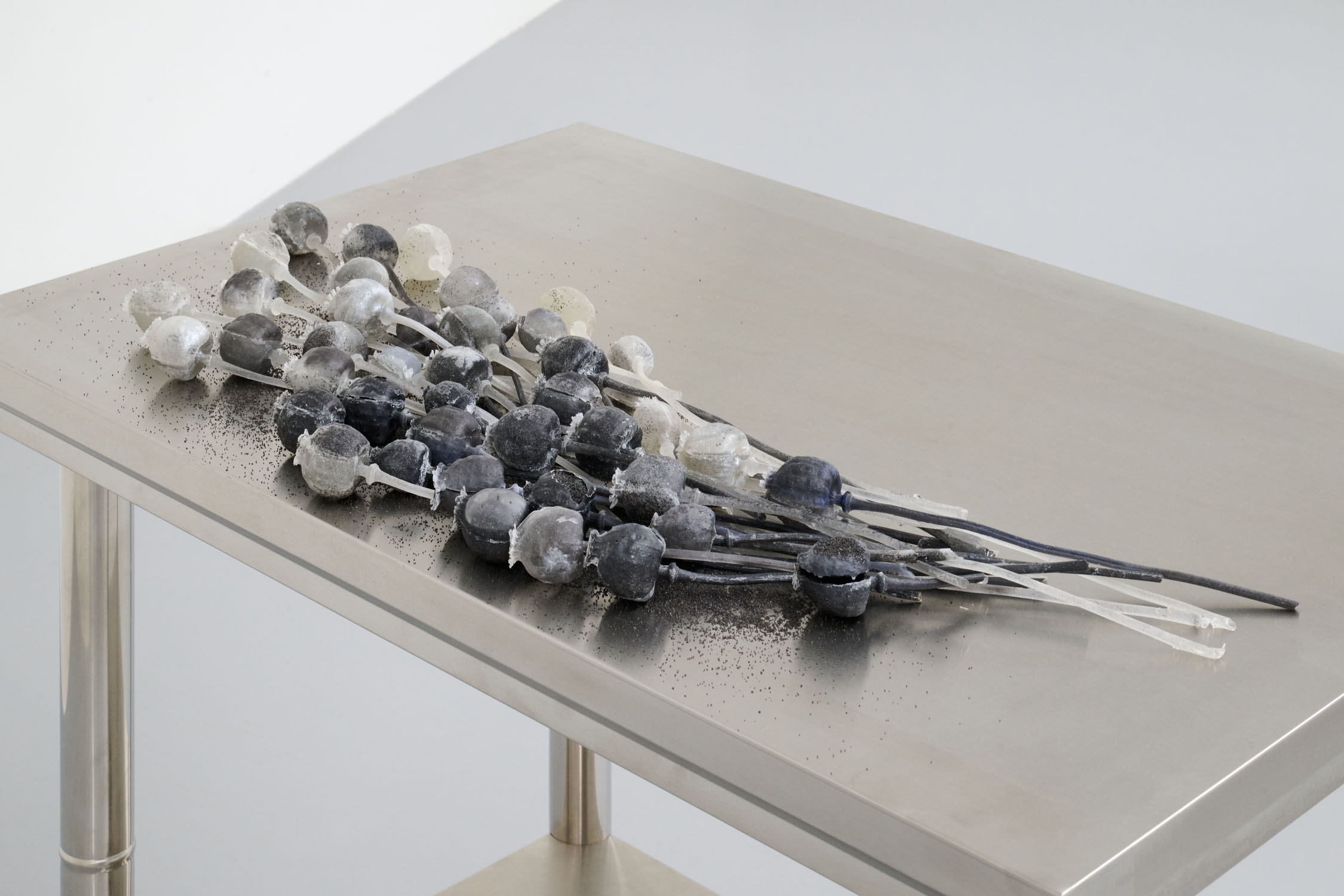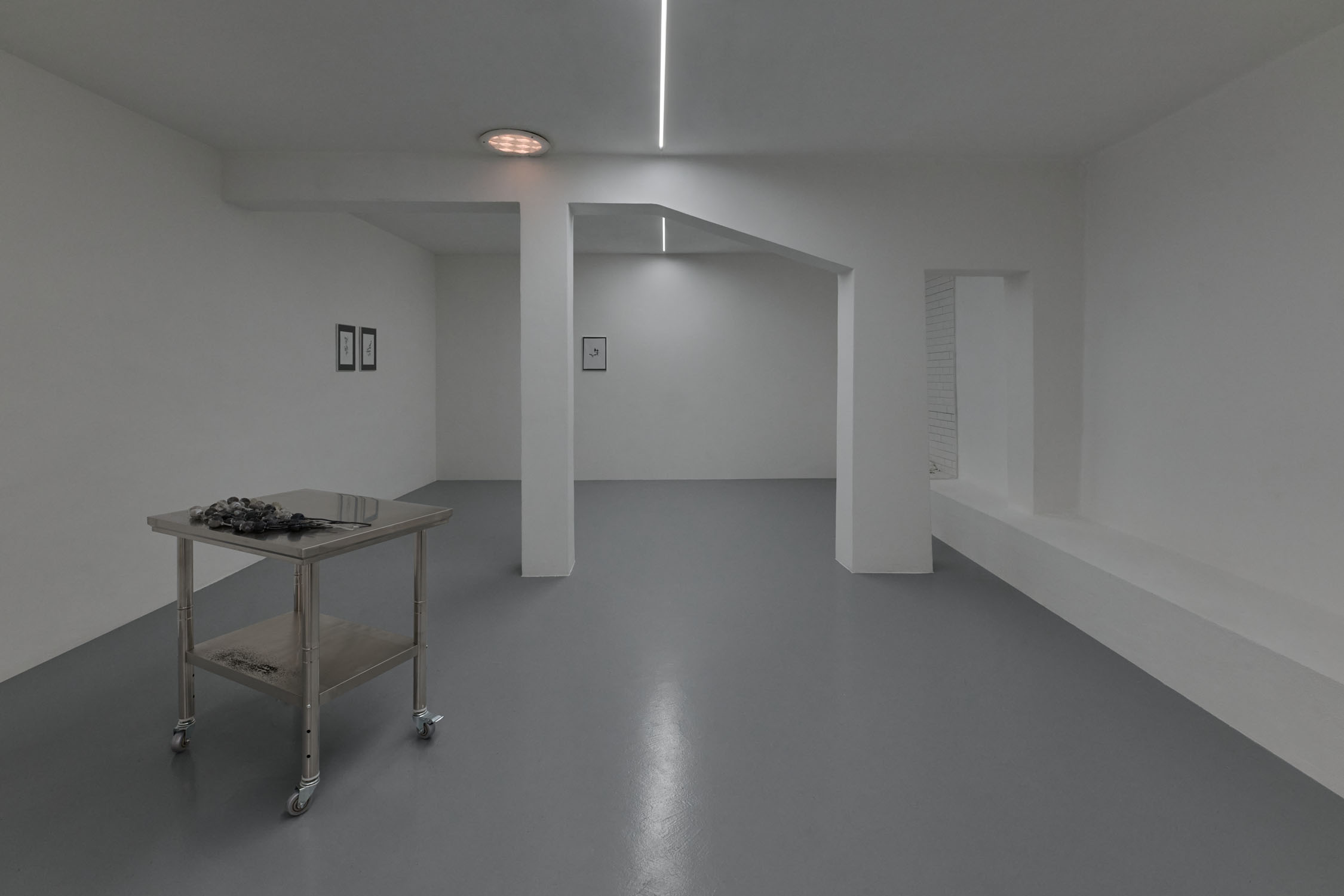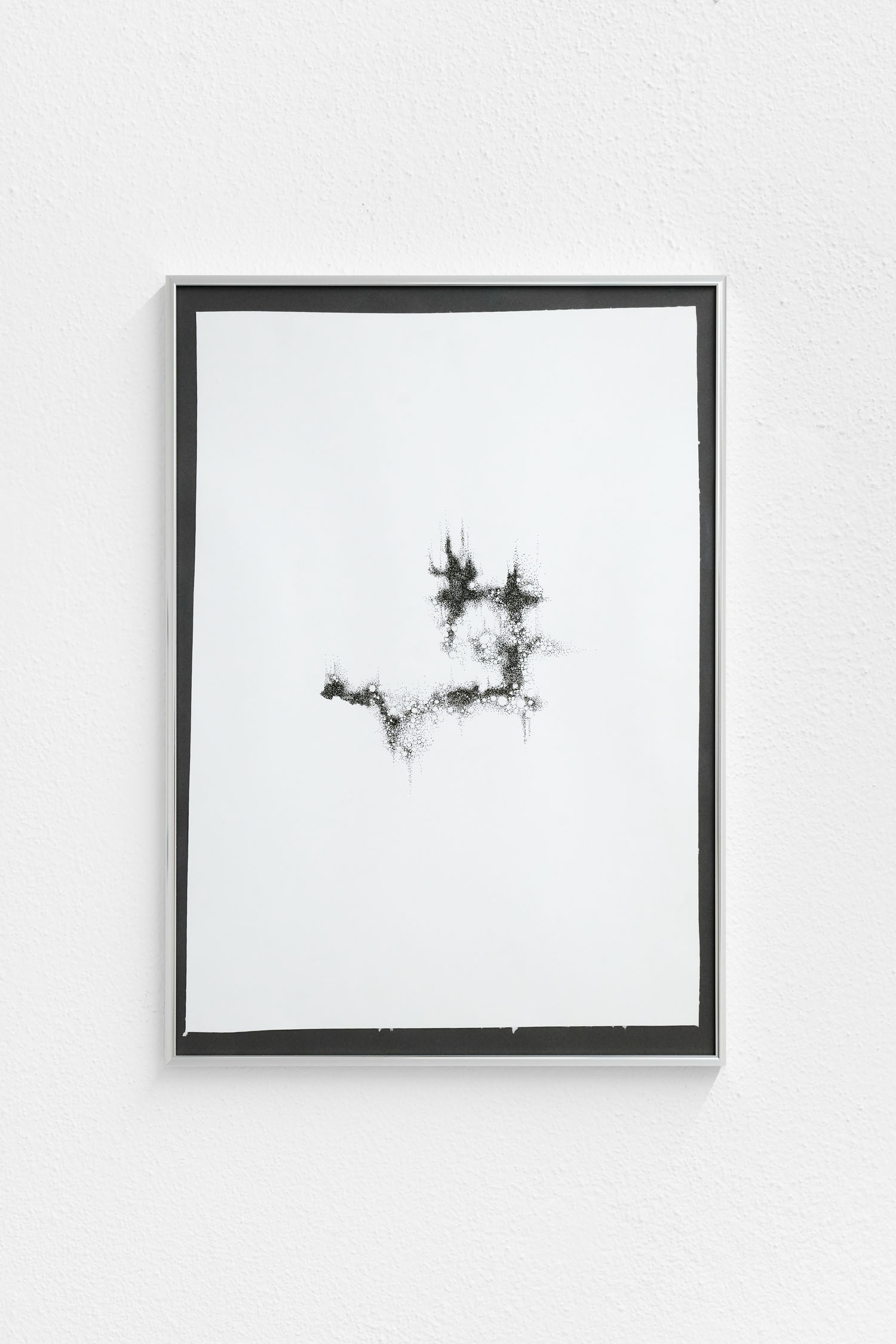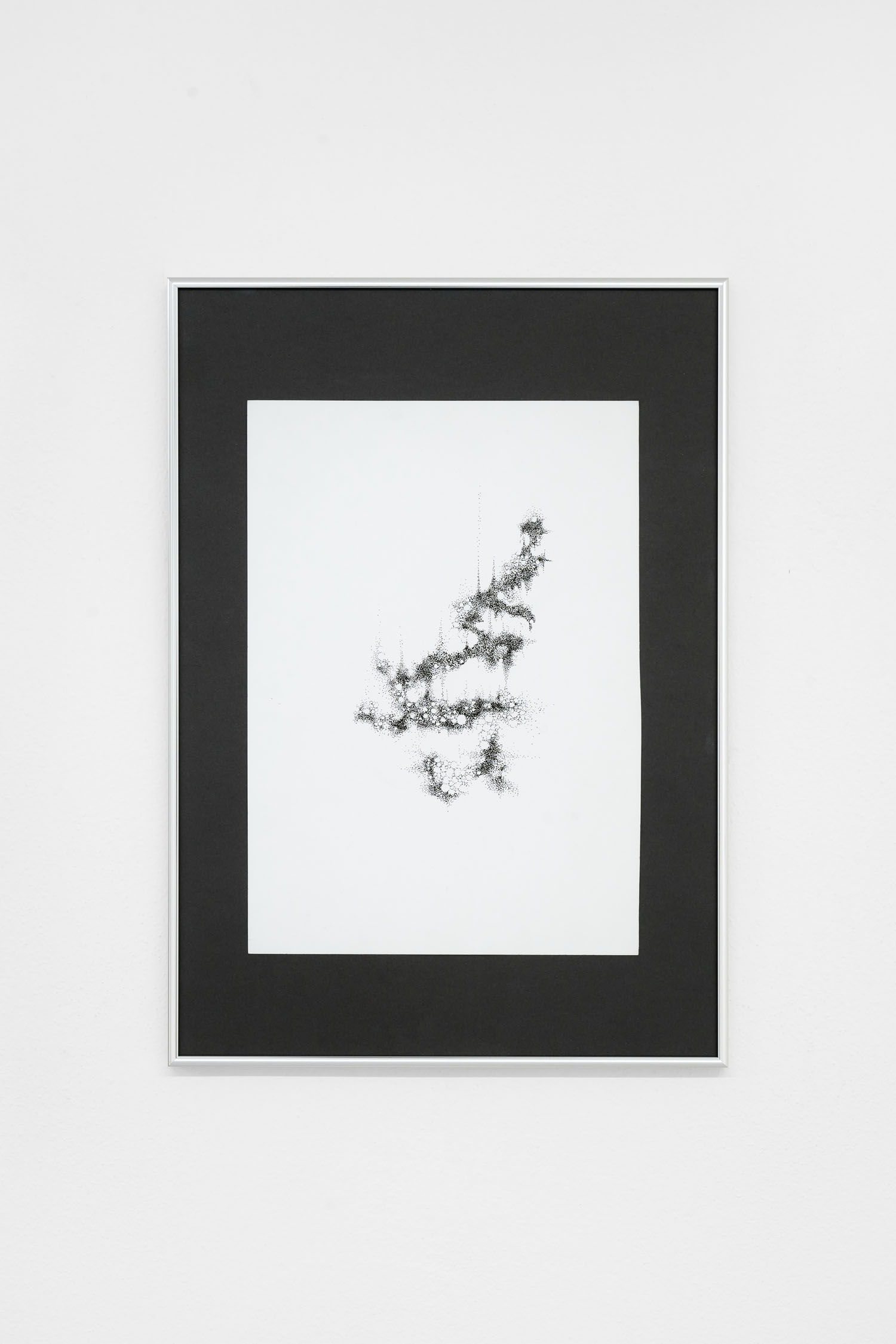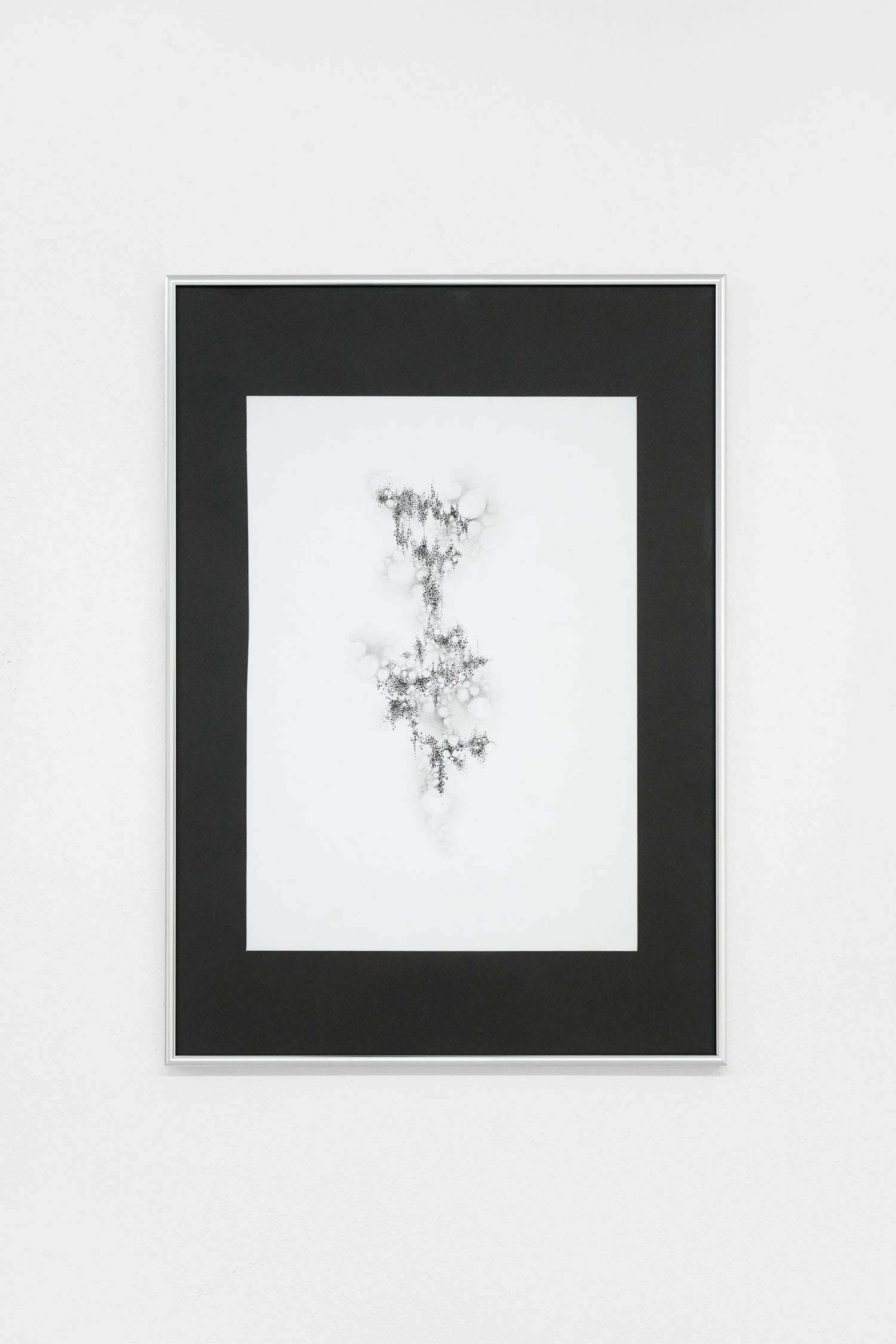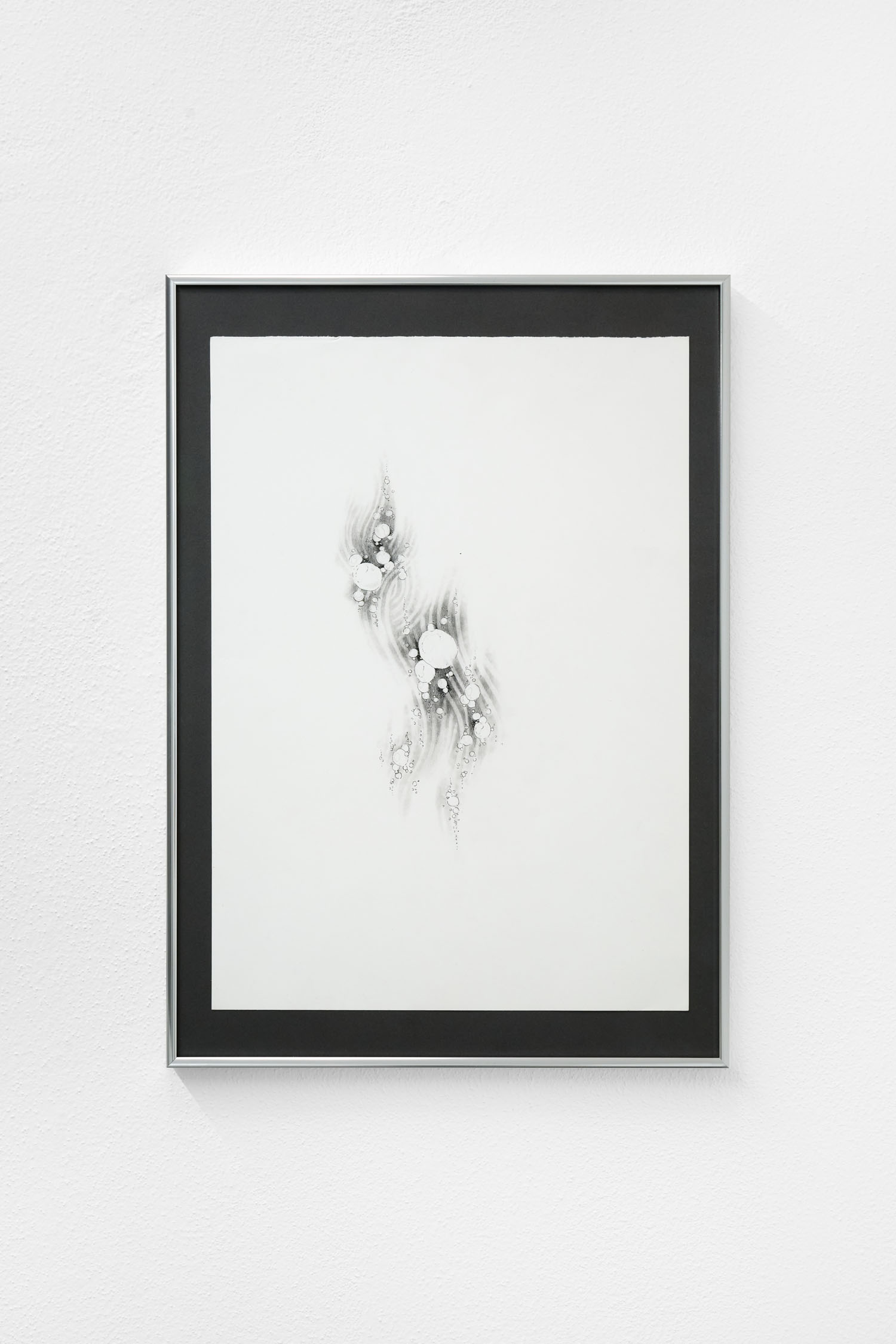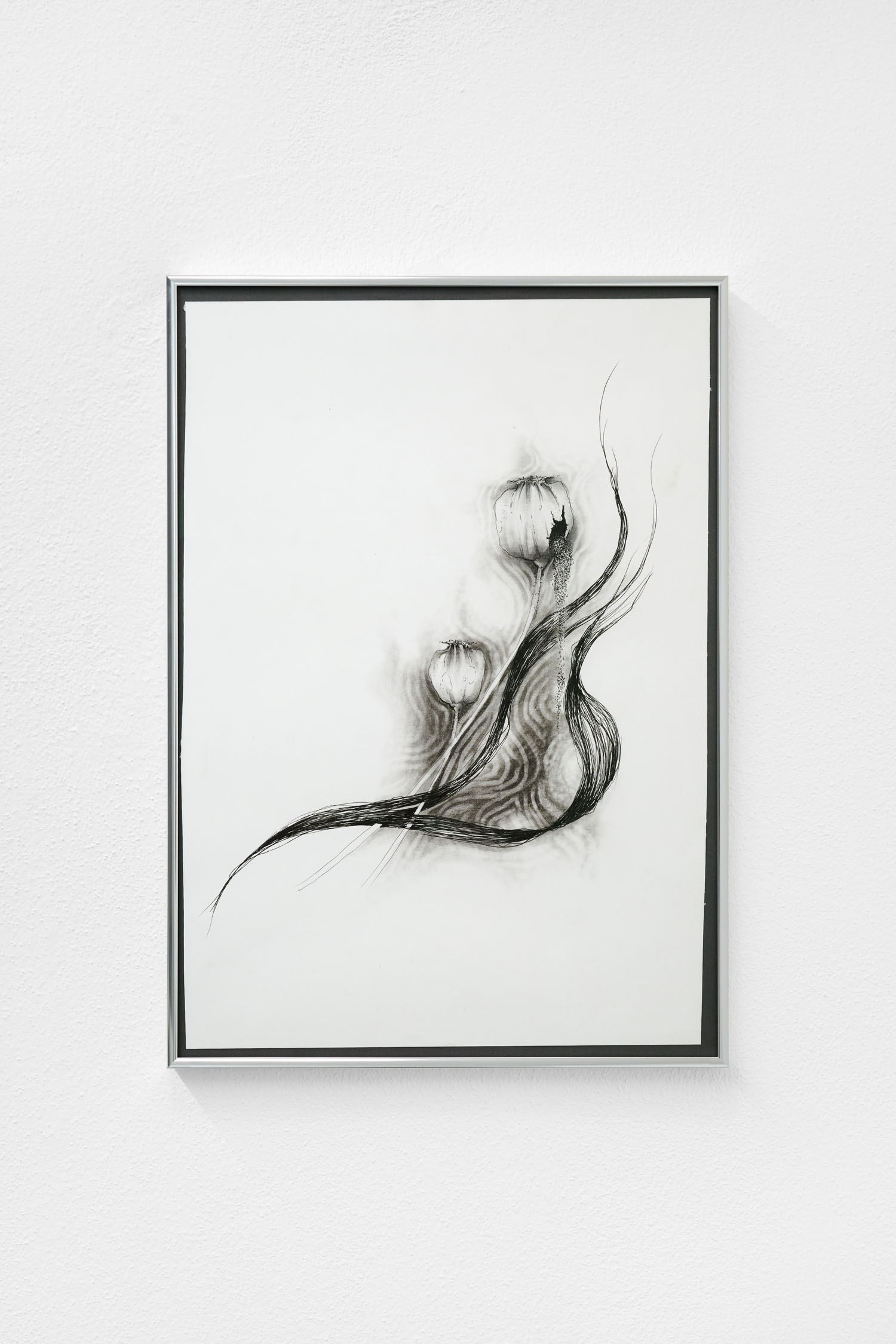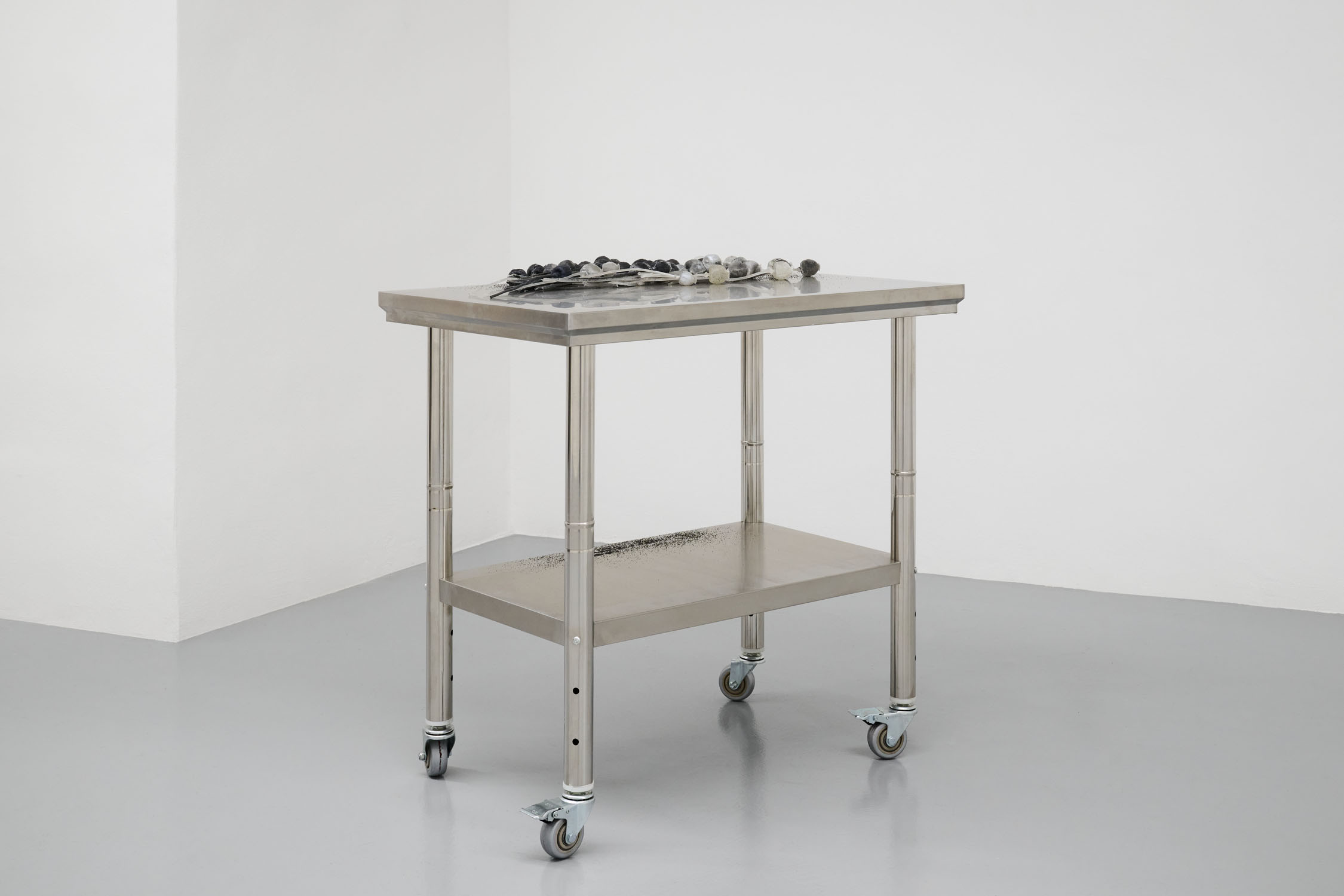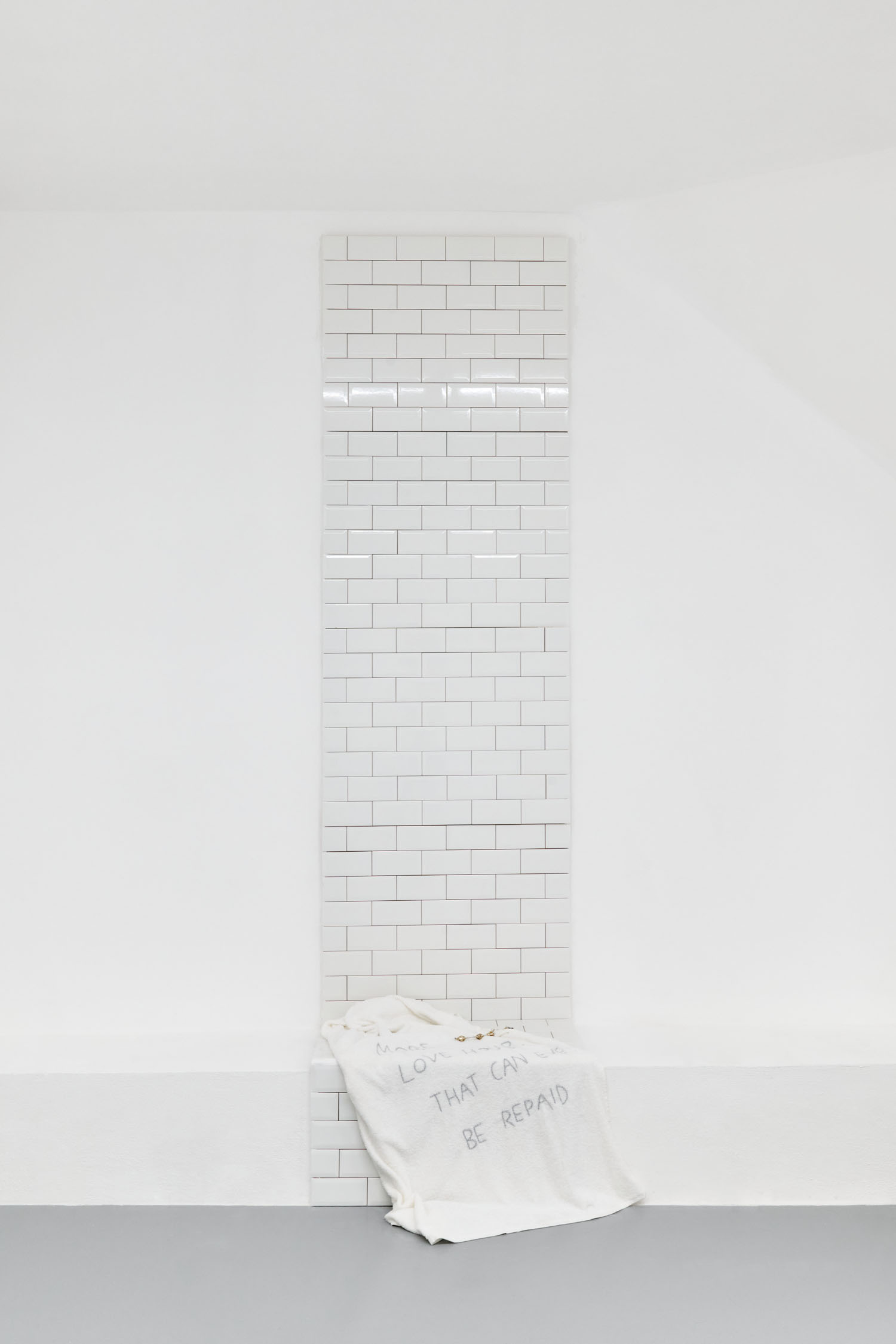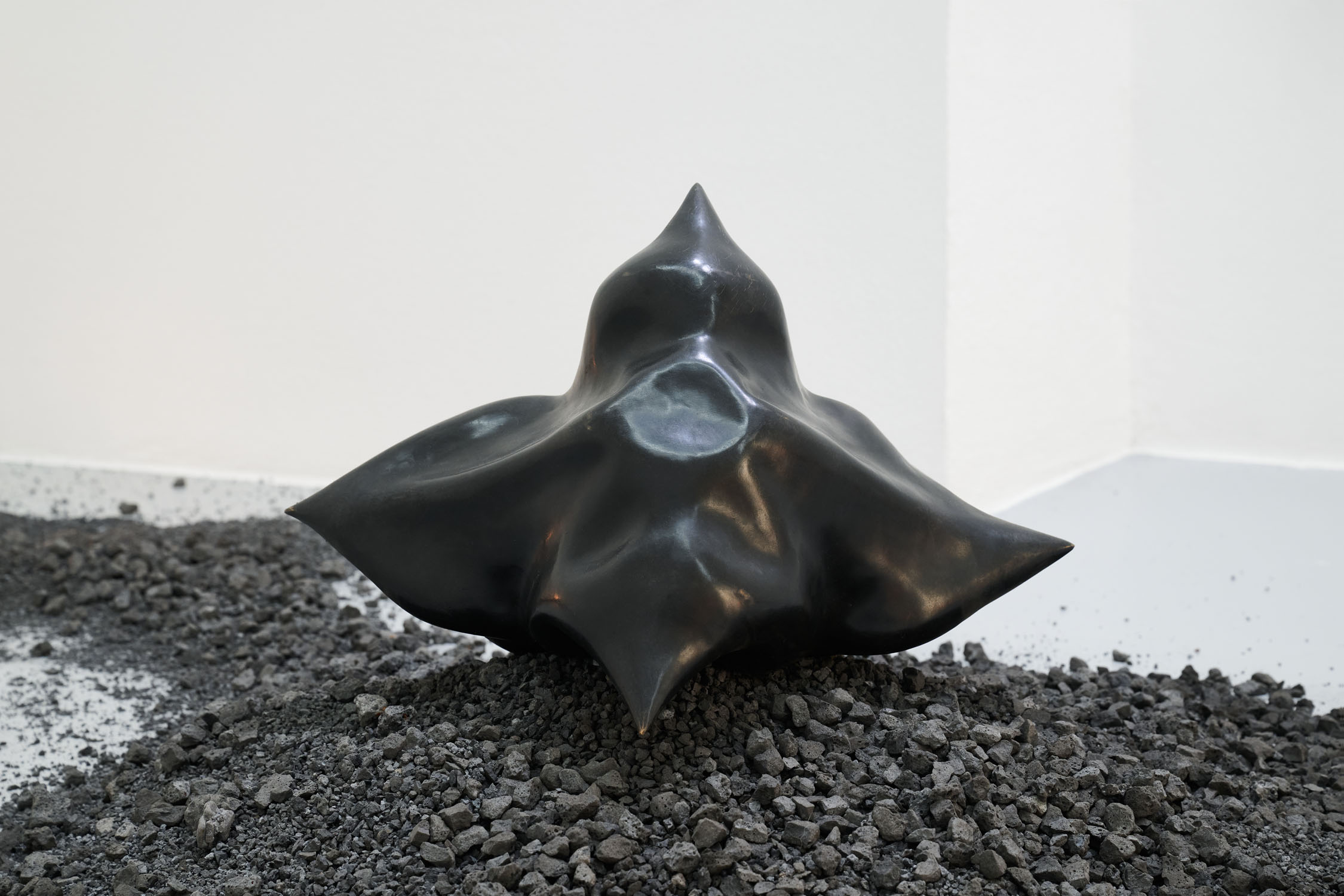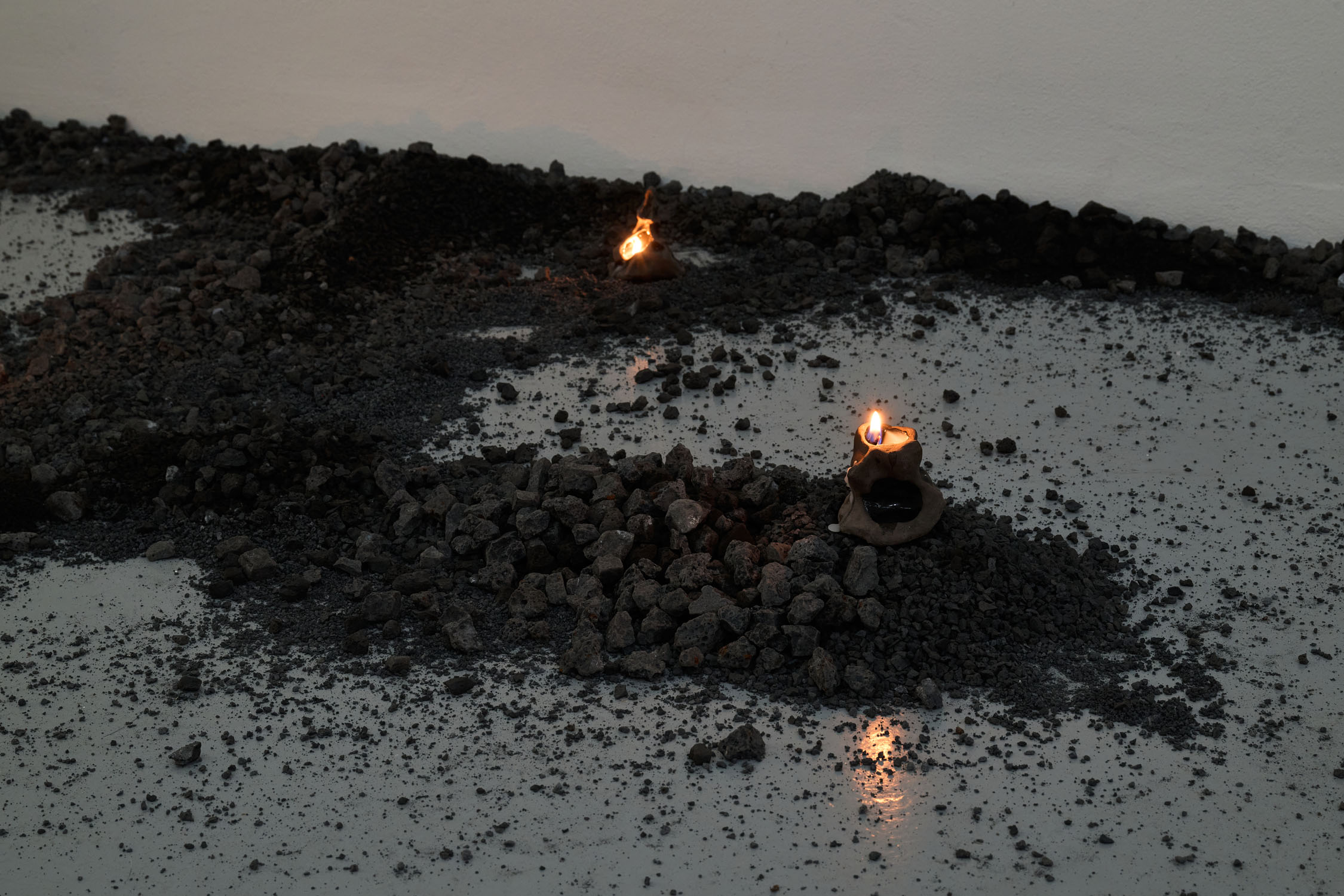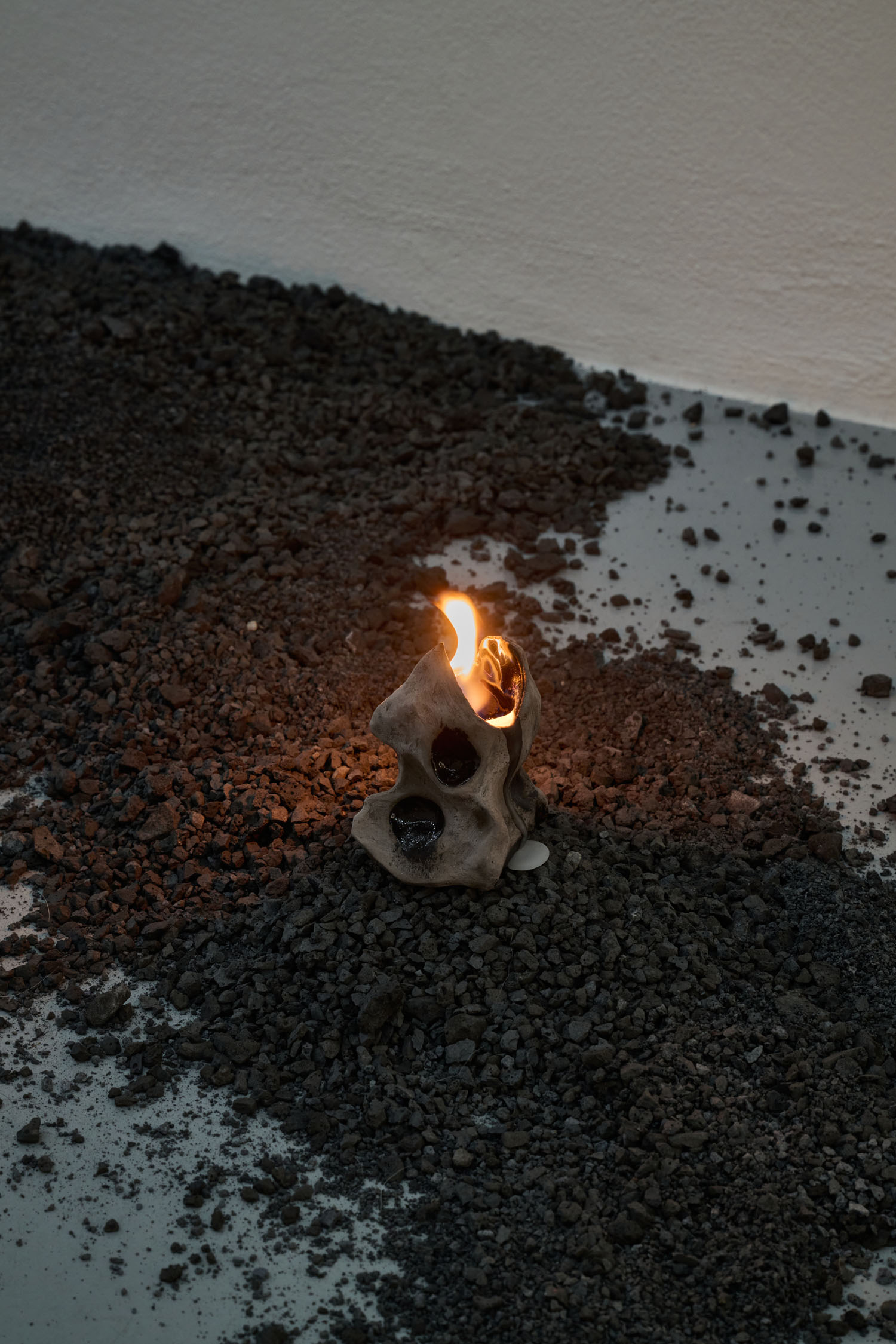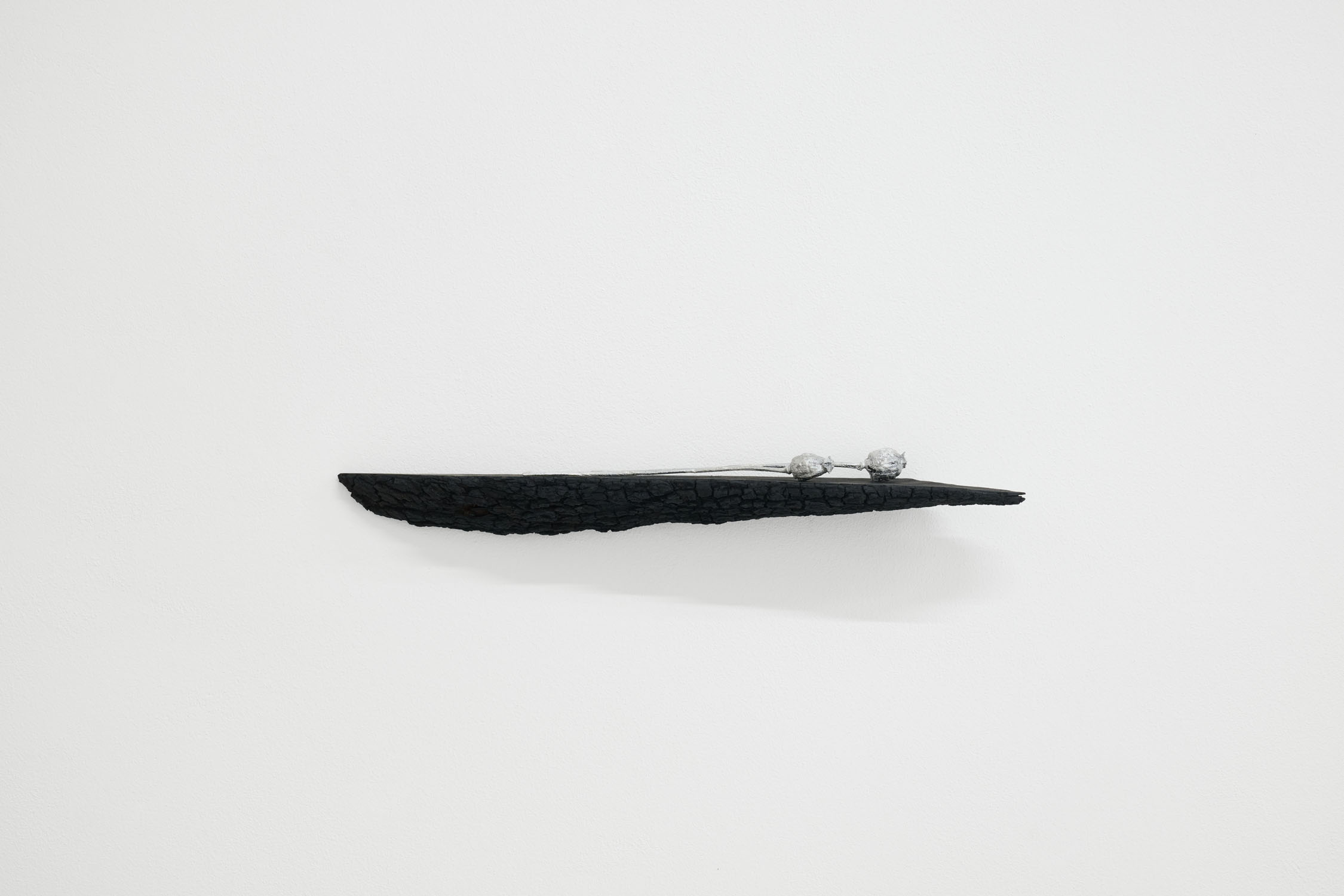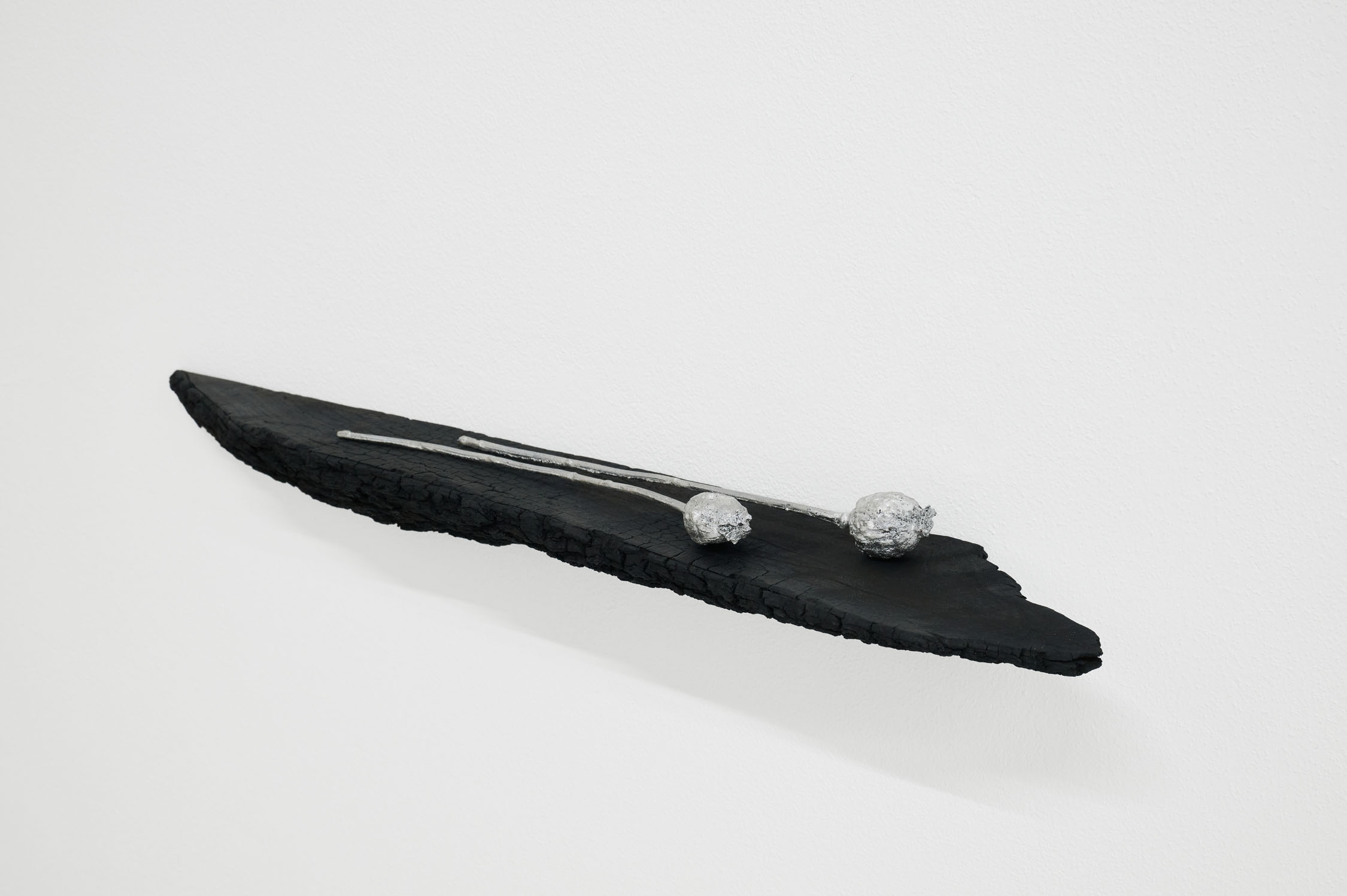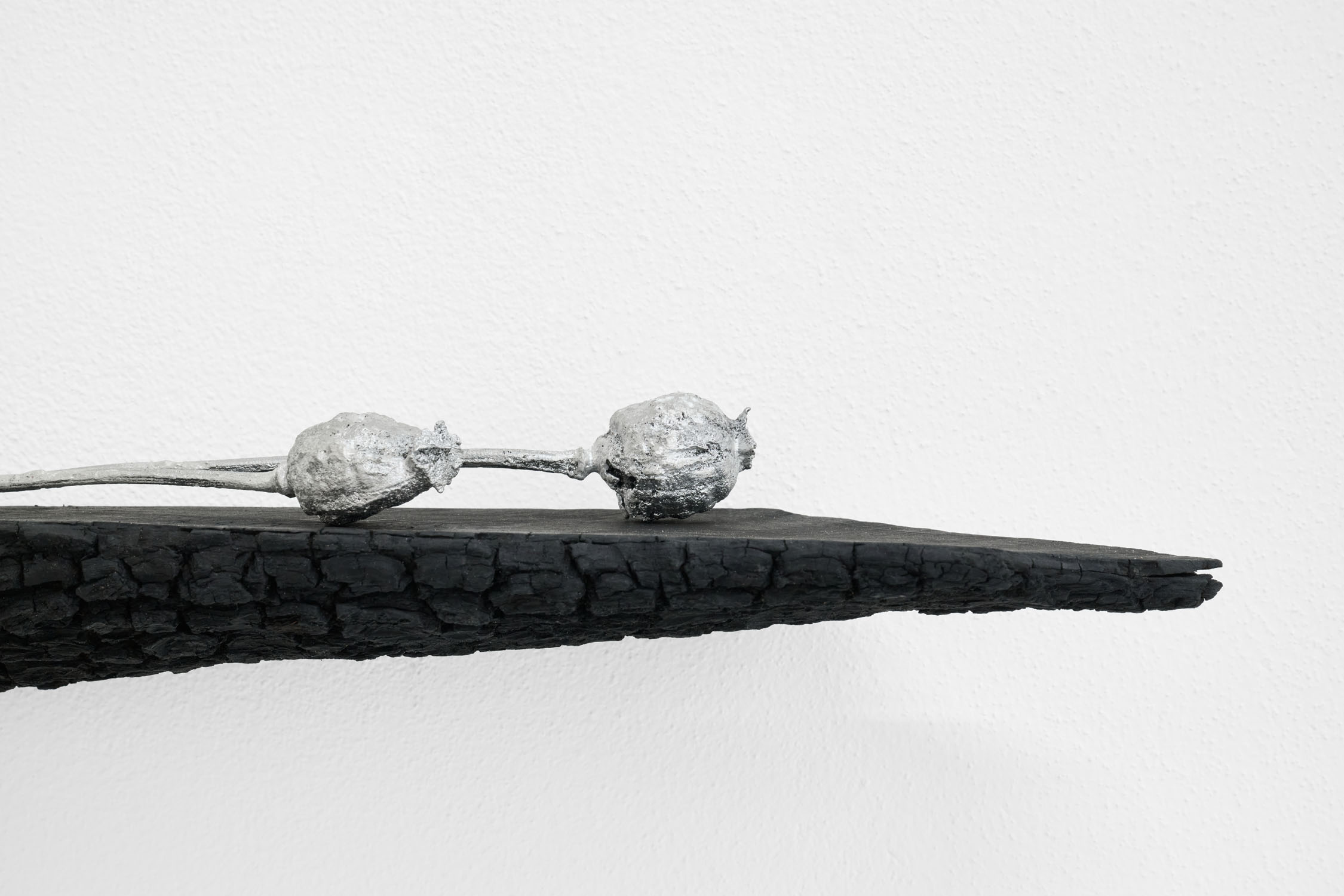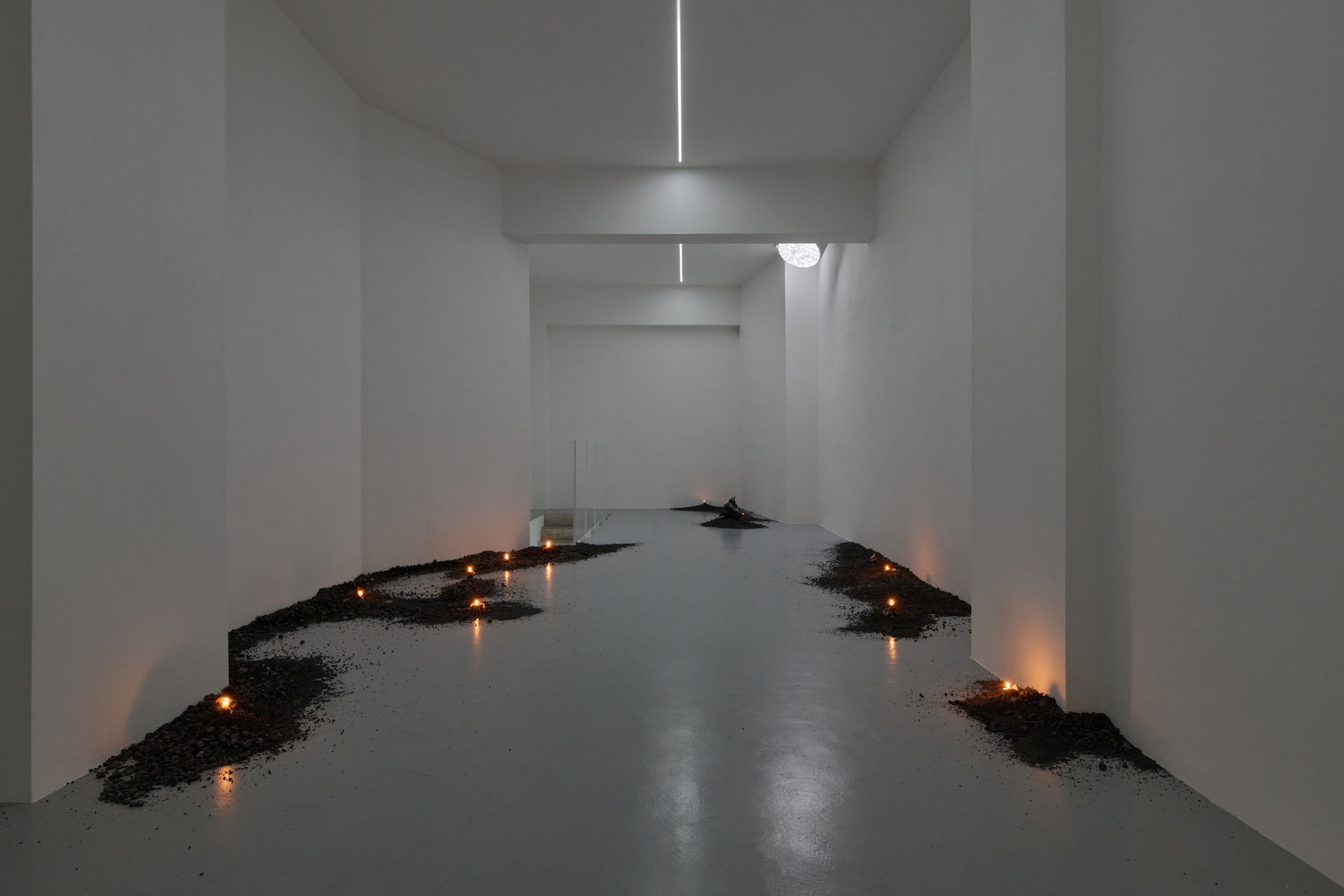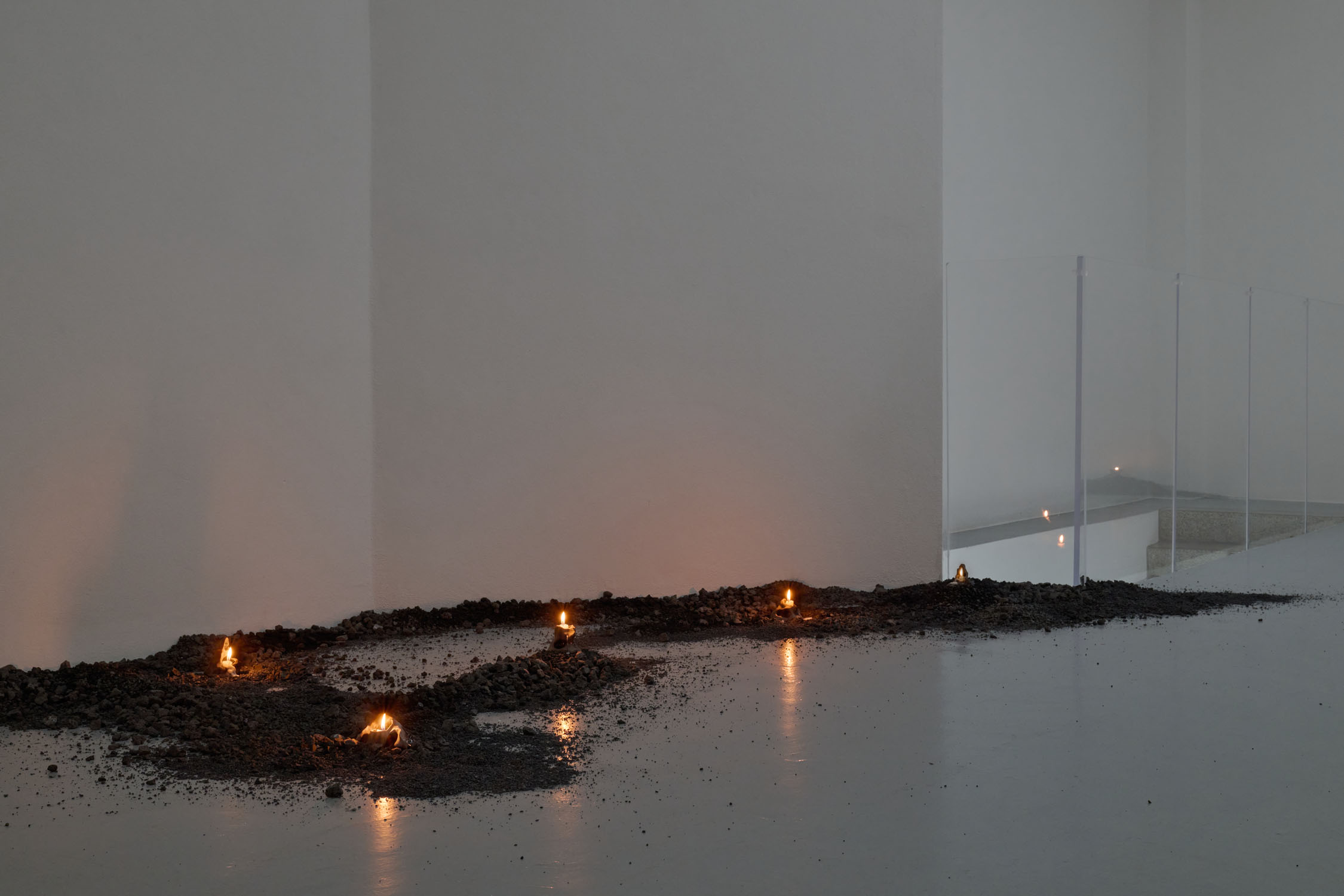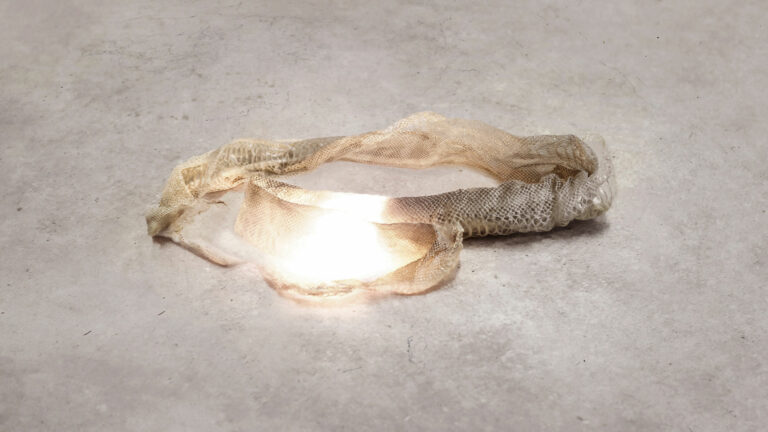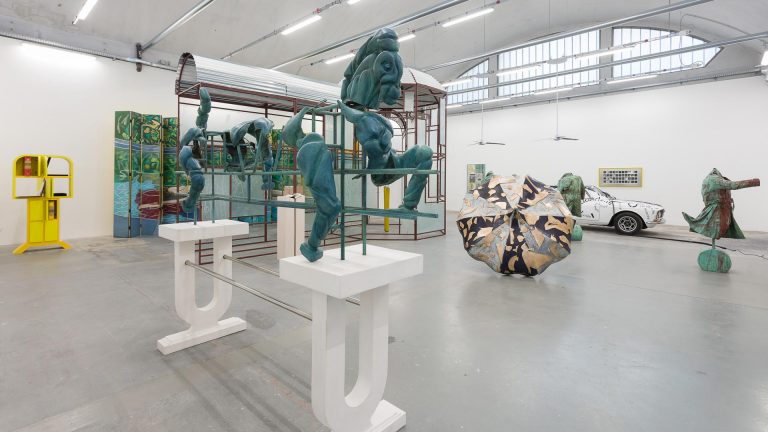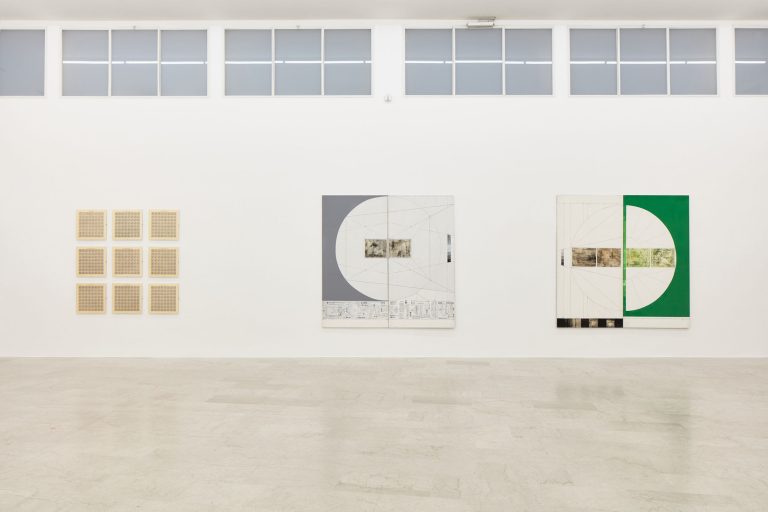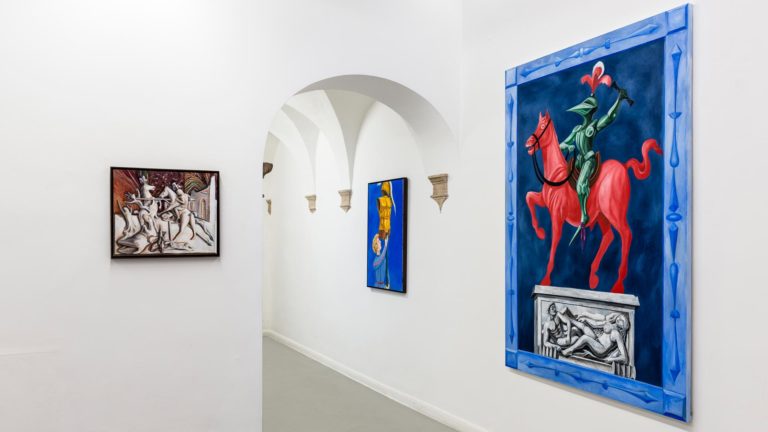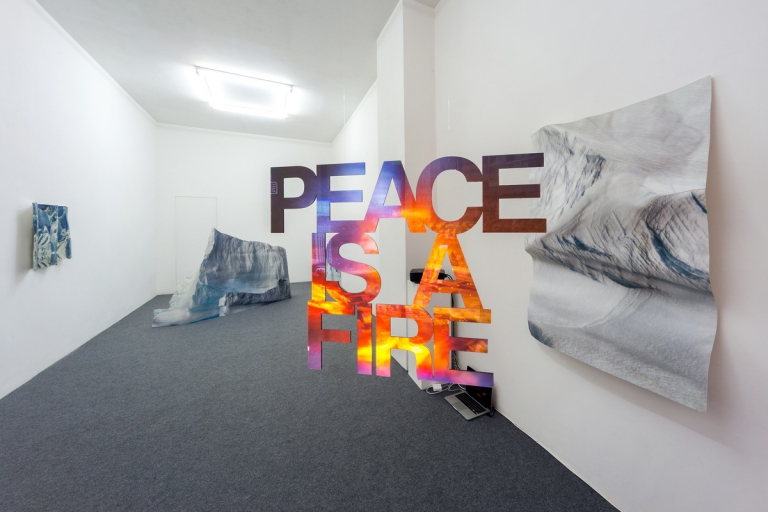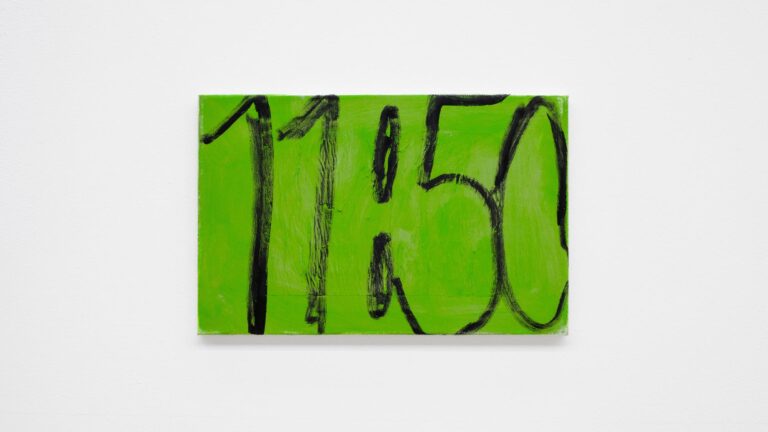“Non siamo qui per parlare della sostanza” I said with Nicole.
“Decorticare il lavoro di un artista è come descrivere il trucco del mago, una volgaritm che eviterò.”
I don’t believe I succeeded in this.
Certainly, the whole parade of citations, hashtags, and authors will come, which seem to be the only conceptual crutch for the indistinguishable multitude of research and practices today.
But I would like, for once, to approach it from a different perspective. Because Capitalist Realism is liked by all, but at a certain point, enough is enough.
Nicole Colombo is holding an exhibition at the gallery, the works are what they are, and the structure of the space is inhabited and adorned, at least in part, by the mantle of narrative.
At least in part, because the abysses that Nicole elegantly seeks to conceal under a seemingly clinical attitude exit through the door and re-enter through the manholes.
That underground is the starting environment. “Underground” is a term that makes sense as long as the digital effluvium has completed globalization, and the town square has gained a bulletin board.
For those who exist before this watershed, there is still a world made of infolines, numbers written on the palms of hands, directions drawn on scraps of paper, the desire to get lost.
But we won’t be indulging in the mythology of discomfort and the elegy of dissolution.
If you do it, you know it; if you know it, you are it.
The rave culture, the nomadic parties, that search for freedom from the social body and even, why not, from the political one, is an important part of Nicole’s personal development, and even if we don’t immediately notice it, it is synthesized and distilled in hints that punctuate the entire narrative, details that wink at us.
In a world of artificial illusions and false necessities, the story lies precisely in those details.
The theme of rituality emerges in the fragments that signify space. The syncretism of symbols, fetishes, and scents reminds me of the first advertising campaign for Yves Saint Laurent’s Opium perfume, created by Helmut Newton, with Jerry Hall dressed and immersed in silk, surrounded by blurred oriental architectures. Since ancient times, the baths have been a space for social and cultural hybridization, where the rigidity of roles softened in the steam.
The nostalgic architectural profile, suspended in time, mixes with fields that remind me of Afghanistan, back when my parents’ friends traveled to India.
Or those, Czechs or Spaniards, where my friends would go to harvest.
It’s as if absolution and dissolution were two lines running parallel, but in opposite directions, and that the form of the rite of passage creates a sort of heterotopic space, between real needs and illusory escapes.
The feet immersed in the black sand of a Lanzarote beach, metallic, primordial.
Small personal gestures, attempts at mediation that form a diary of public intimacy.
to us a giant seed, a fragment of a rosary as large as the desire to confront this ancient double that traverses us in space and time.
Corrode me, regenerate me.
We are all seeking shelter from neoliberal schizophrenia, an inversion of the everyday, to escape the imperative logic of production, at least for a while.
The desire for suspension crosses epochs and trends, reappearing punctually at the threshold of imperception. The pharmaceutical-pornographic capitalism (Preciado) has turned our bodies into a field for technological and political experimentation, and the production of pleasure has become a matter of state.
The regime of digital surveillance (Zuboff) capitalizes on our behavioral surplus, and we have gone from being producers to consumers to products, and finally to raw material, through processes of data mining and data harvesting.
If the soft machine works, don’t fix it.
The opiate removes the temporal dimension from fear. Suffering becomes abstract.
Associated with time, “slowing down” is an inappropriate term, “suspending” is more correct, while smoke remains in the lungs, and the eyes adjust to the steam.
Always too long, always too short, a smoke in time-lapse. “Follow the dragon along the tinfoil.”
An invitation to get lost. The fear of what we have left behind. Paraphrasing Nicole, who in turn quotes an artist she greatly admires, Mike Kelley, “more hours of love than can ever be repaid.”
In the bubble, time becomes an abstract concept.
An abstraction that resonates in the tension between anesthesia and hypersensitivity, in the struggle between the need to protect oneself and the attraction to narcotic dissolution.
This exhibition is a look at Nicole’s hidden intimacy. We trace her steps, always balancing between the personal and the collective; the gallery space offers us a temporary refuge made of tactics and strategies to mediate a condition of serenity, always on the edge.
A dichotomy whose dialectic, perhaps irresolvable, resonates already in the title, Seeds of Presence // Seeds of Absence.
Once again, seeds as large as the desire to confront the personal dualisms of being human.
And it is precisely in this space of tension that Nicole Colombo’s artistic research, in my opinion, finds its resonance.
–Stefano Serretta

